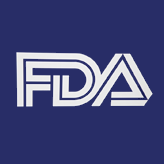FDA Approves Ixazomib (Ninlaro) for Multiple Myeloma
The FDA approved the proteasome inhibitor ixazomib, in combination with lenalidomide and dexamethasone, to be used as a second-line treatment in multiple myeloma.
Ixazomib becomes the second new agent approved by the FDA for multiple myeloma this week

Earlier today the US Food and Drug Administration (FDA) announced the approval of ixazomib (Ninlaro) in combination with lenalidomide and dexamethasone for patients with multiple myeloma who have been treated with at least one prior therapy.
Ixazomib is the first proteasome inhibitor approved by the FDA. It was granted priority review and had received orphan drug designation.
Ixazomib was approved based on efficacy results out of the TOURMALINE-MM1 trial. The trial included 722 patients with myeloma who had prior treatment with between one and three other therapies. Patients were randomly assigned to lenalidomide and dexamethasone with (n = 360) or without (n = 362) ixazomib.
The manufacturer announced results of an interim analysis in February, saying that the trial had met its primary endpoint. Patients assigned ixazomib had significantly improved progression-free survival compared with lenalidomide and dexamethasone alone (median 20.6 months vs 14.7 months; hazard ratio [HR], 0.74; P = .012).
Patients assigned ixazomib experienced more common occurrence (> 20%) of diarrhea, constipation, thrombocytopenia, peripheral neuropathy, nausea, peripheral edema, vomiting, and back pain compared with patients on the lenalidomide/dexamethasone arm of the trial.
Based on the results of the clinical trials, the recommended starting dose of ixazomib is 4 mg orally on days 1, 8, and 15 of a 28-day cycle in combination with lenalidomide 25 mg daily on days 1 through 21 and dexamethasone 40 mg on days 1, 8, 15, and 22 of a 28-day treatment cycle.
“As we learn more about the underlying biology of multiple myeloma, we are encouraged to see the development of new ways to treat this disease,” Richard Pazdur, MD, director of the Office of Hematology and Oncology Products at the FDA’s Center for Drug Evaluation and Research, said in a prepared statement. “Today’s approval is the third drug for multiple myeloma approved this year and provides patients with a new oral treatment that slows disease progression when other therapy has failed.”
Ixazomib was the second myeloma drug approved by the FDA this week. Daratumumab was approved for patients with multiple myeloma who have received at least three prior treatments. Daratumumab was the first monoclonal antibody approved for patients with myeloma.
Earlier this year the FDA also approved panobinostat for patients with myeloma. Panobinostat is the first histone deacetylase (HDAC) inhibitor approved for myeloma.
Navigating AE Management for Cellular Therapy Across Hematologic Cancers
A panel of clinical pharmacists discussed strategies for mitigating toxicities across different multiple myeloma, lymphoma, and leukemia populations.